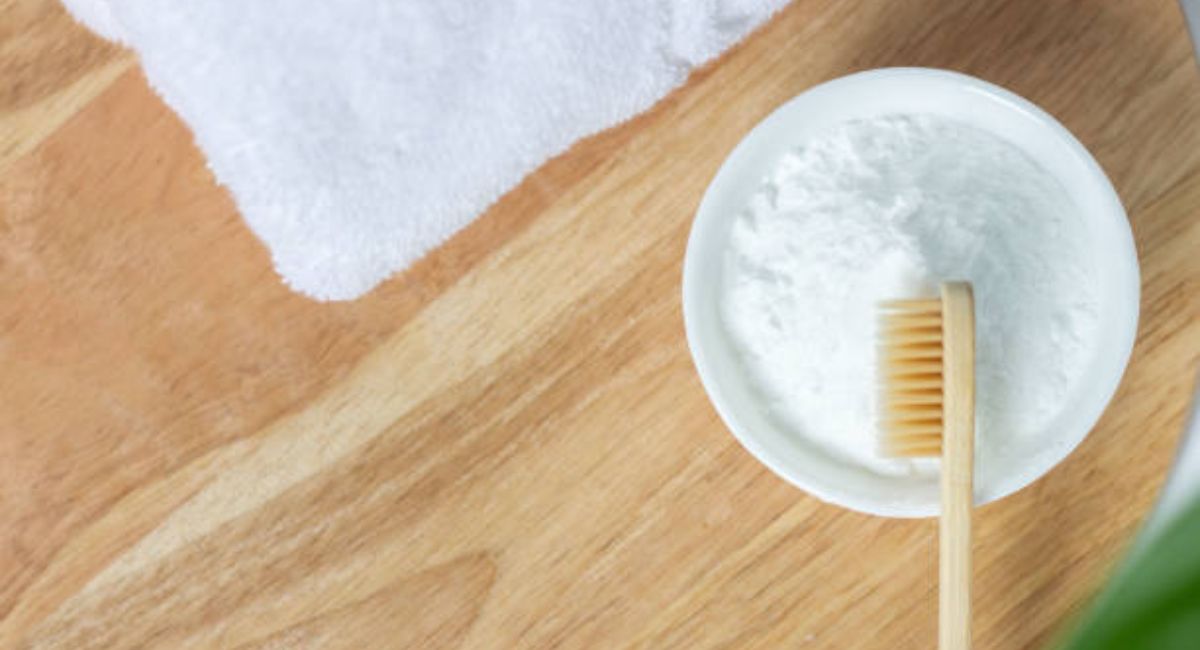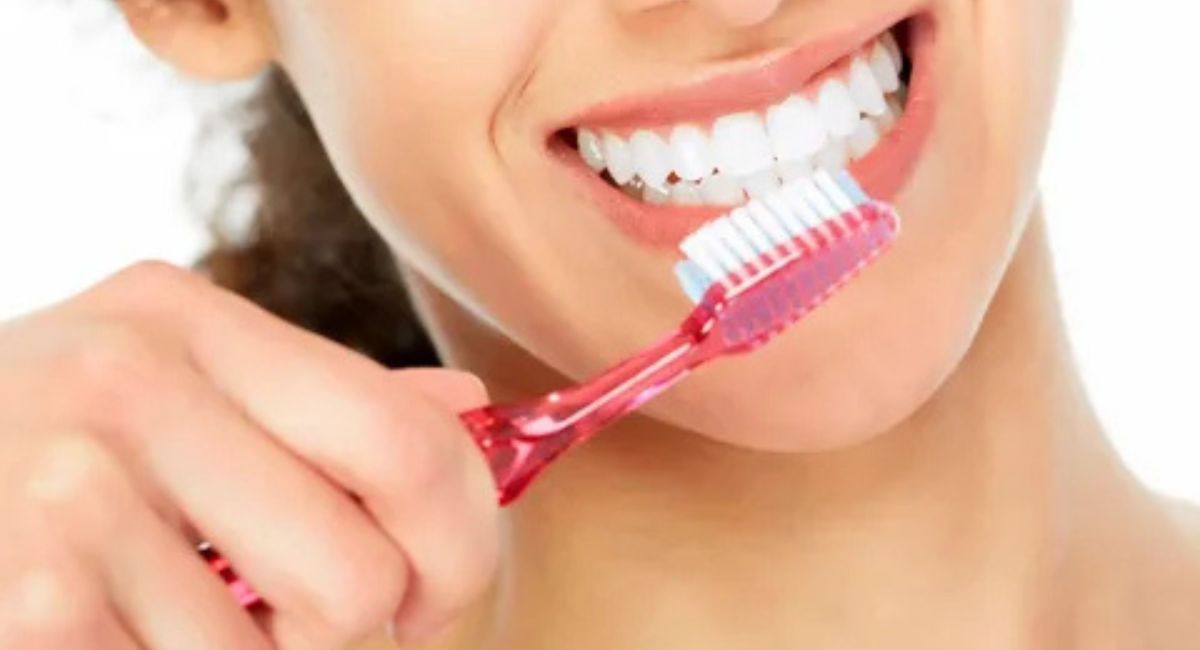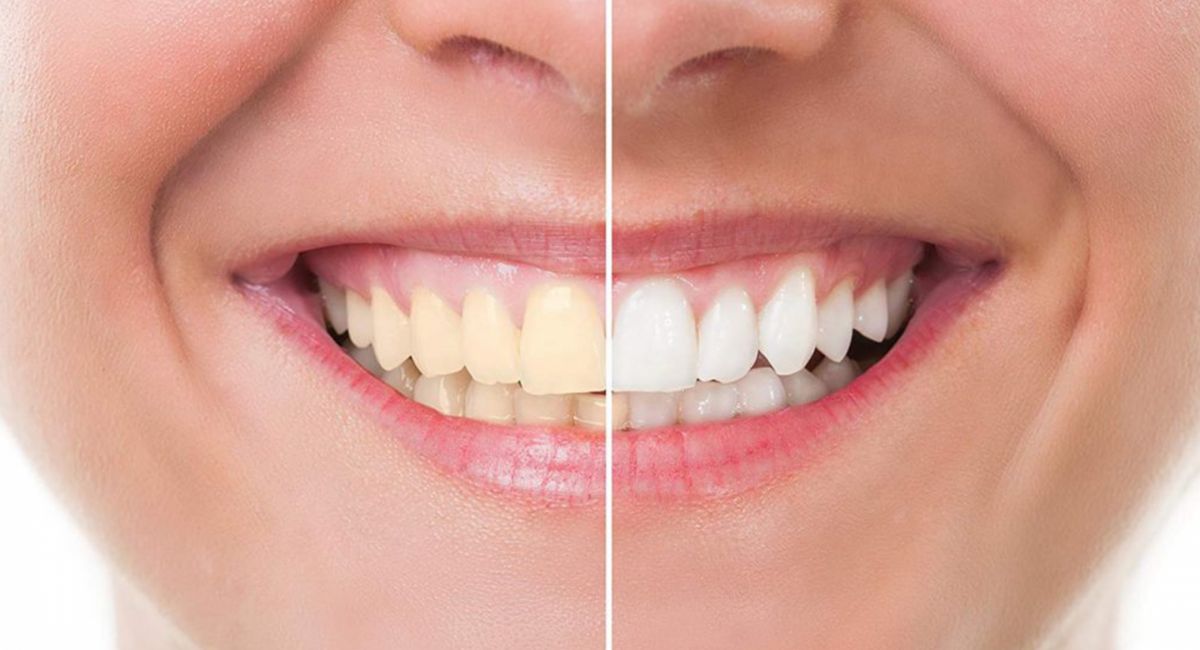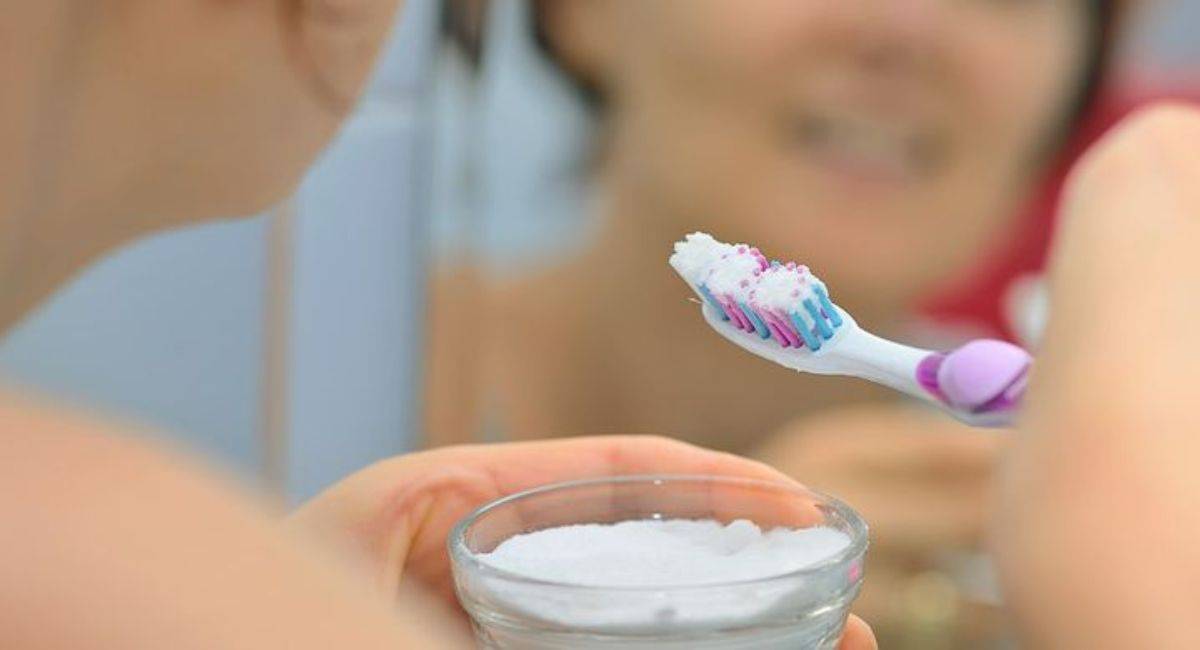Have you ever stood in front of your bathroom mirror wondering if that little box of baking soda could replace your toothpaste? Maybe you’ve heard friends say it works like magic, or you’ve seen hacks online that promise a whiter smile in days. It sounds simple and cheap, but deep down, you’re asking yourself—Can we Use Baking Soda to Brush Your Teeth
This blog will give you clear answers without the confusing jargon. You’ll learn whether baking soda is safe for daily use, how it actually works on stains, and what the pros and cons are. We’ll also share expert tips, safe methods, and better alternatives so you can make the right choice for your smile.
Why Do People Brush Their Teeth with Baking Soda?
People use baking soda for cleaning teeth because it has been around for generations as a DIY oral care method. Before commercial toothpaste existed, baking soda was one of the easiest ways to clean teeth at home. It’s cheap, easy to find in any store, and it feels like a natural teeth whitening method. Many online tutorials show safe alternatives to toothpaste that promise results without chemicals. Some even call it the best way to use baking soda for oral care.
Another reason is that baking soda has mild abrasive properties, which help remove surface stains. Those who want whitening teeth without damaging enamel see baking soda as an option because it doesn’t contain harsh bleaching chemicals. But does this simple ingredient really deliver what it promises? That’s what most people want to know.

Is Baking Soda Safe for Daily Tooth Brushing?
“Is it safe to brush teeth with baking soda every day?” The short answer is no. Baking soda can be used safely, but daily brushing is not recommended. The American Dental Association recommendation for baking soda says it should not replace fluoride toothpaste because baking soda does not protect against cavities. It lacks fluoride, which is essential for enamel strength.
Brushing every day with baking soda can cause side effects of brushing with baking soda, like thinning enamel. Over time, this could make your teeth sensitive. It’s fine to use occasionally as part of dental care tips for white teeth, but not as a full-time toothpaste replacement. Moderation is the key.
How Does Baking Soda Work on Teeth?
So, “How does baking soda remove stains from teeth?” It works because it is mildly abrasive, which helps scrub away surface stains caused by coffee, tea, or smoking. It also balances pH levels in your mouth, which reduces acid that harms enamel. That’s why some people believe baking soda is good for oral hygiene.
Besides cleaning, does baking soda kill bacteria in mouth? Yes, but not completely. It can reduce bacteria because it makes the mouth less acidic, which bacteria hate. However, it’s not as strong as toothpaste that has fluoride and antibacterial agents. Baking soda helps, but it’s not a magic solution for full oral health.
Can we Use Baking Soda to Brush Your Teeth?
Can we Use Baking Soda to Brush Your Teeth? Yes, but only for mild stains. It won’t change the natural color of your teeth because it doesn’t bleach. Instead, it removes dirt and discoloration from the surface. Many people think it will give Hollywood-style white teeth, but that’s a myth. If you want a bright white smile, you’ll need professional whitening or products made for that purpose.
Using baking soda once in a while is one of the simplest natural teeth whitening methods you can try at home. But it can’t compete with dentist-approved treatments. So if you want serious whitening, baking soda alone won’t do it.
Does Baking Soda Damage Tooth Enamel or Gums?
Here’s the big question: “Can baking soda damage enamel?” It can if you use it too often or scrub too hard. The tiny particles can wear down enamel over time. That means your teeth could become sensitive and more likely to develop cavities.
Gums can also suffer. Too much scrubbing with baking soda can irritate them and cause redness or soreness. If you care about enamel protection while whitening, use baking soda with caution. Don’t replace toothpaste completely, and don’t brush too aggressively.
What Are the Pros and Cons of Using Baking Soda?
Using baking soda for brushing has some good points. The benefits of using baking soda for teeth include affordability, stain removal, and freshness because does baking soda help with bad breath? Yes, it does for a short time. It neutralizes acids and odor-causing bacteria.
But there are downsides too. The side effects of brushing with baking soda include enamel wear, lack of fluoride, and gum irritation. Below is a quick comparison:
| Pros | Cons |
|---|---|
| Cheap and easy to find | No fluoride for cavity protection |
| Mild whitening for surface stains | Can erode enamel with daily use |
| Reduces acidity in the mouth | Tastes salty and unpleasant |

How to Brush Teeth with Baking Soda the Right Way
Wondering about the best way to use baking soda for oral care? Start with a small amount, about half a teaspoon. Mix it with water to make a smooth paste. Apply it gently with your toothbrush, and brush for no more than two minutes. Rinse well afterward to remove any residue. This keeps your enamel safe while still cleaning your teeth.
Don’t scrub hard because this can cause more harm than good. Use it just like you would with toothpaste but gently and for a short time. Always follow up with regular fluoride toothpaste during the day for complete care.
How Often Should You Use Baking Soda for Brushing?
If you’re asking “Can I replace toothpaste with baking soda?” the answer is no. You shouldn’t replace it because baking soda doesn’t fight cavities like toothpaste does. So how often is okay? Experts suggest using it once or twice a week. This prevents side effects of brushing with baking soda while giving you the benefits.
Daily use can damage enamel, so avoid doing it every day. A mix of normal toothpaste and occasional baking soda works best for keeping teeth clean without harming them.
Alternatives to Baking Soda for Teeth Whitening
If you don’t want to use baking soda often, there are safe alternatives to toothpaste and whitening options. Whitening toothpaste with fluoride is a better daily option. There are also homemade teeth whitening solutions like mixing hydrogen peroxide with water. But be careful—too much peroxide can harm gums.
For the best results, professional treatments are the safest. They protect enamel while giving the whitening effect people want. Remember, whitening teeth without damaging enamel should always be the goal.
Expert Tips for Safe and Effective Oral Care

Experts agree that brushing twice a day with fluoride toothpaste is the best habit. Baking soda is fine as an extra, but don’t depend on it. Visit your dentist every six months for cleaning and checkups. Drink water often, eat less sugar, and don’t skip flossing.
If you want dental care tips for white teeth, start with a healthy routine and avoid too many acidic foods. Use baking soda occasionally as a helper, not a hero.
Final Thoughts
Baking soda can help clean your teeth, but only when you use it wisely. It works best as a supplement to regular toothpaste, not a replacement. If you overdo it, you risk damaging enamel and gums. For long-term oral health and a white smile, stick to safe practices and consult your dentist before making changes. Natural methods are good, but they should never harm your teeth.
FAQs About Can we Use Baking Soda to Brush Your Teeth?
1. Is it safe to brush with baking soda every day?
Not recommended. Limit use to 2–3 times per week.
2. Does baking soda actually whiten teeth?
Yes, it helps with surface stains but won’t bleach teeth.
3. Can baking soda replace toothpaste entirely?
No. It lacks fluoride, which is essential for cavity protection.
4. Does baking soda help with bad breath?
Yes, temporarily. It neutralizes odor-causing bacteria.
5. Can baking soda damage enamel?
Not if used occasionally and gently. Overuse, however, can wear enamel.
6. Can kids use baking soda for teeth?
It’s generally safe, but kids should primarily use fluoride toothpaste.
7. Can I mix baking soda with toothpaste?
Yes, you can sprinkle a little on your toothpaste occasionally for extra stain removal.

